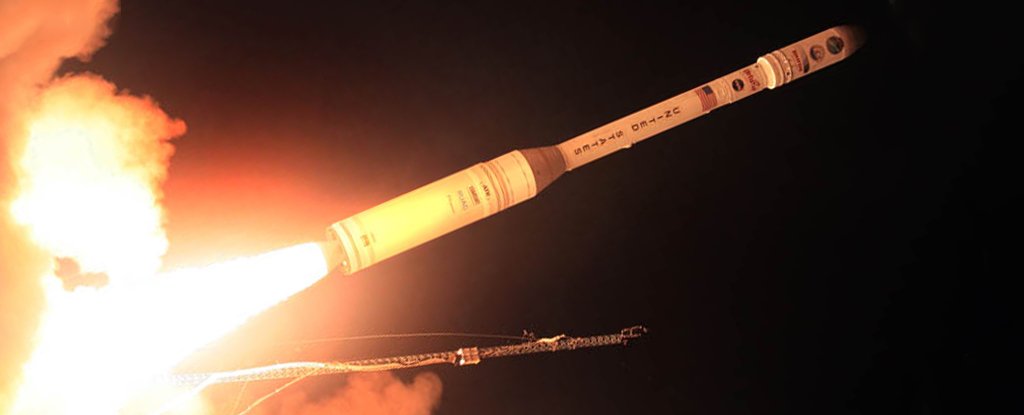
After a lengthy investigation, NASA has finally pinned down the reason two science missions failed to launch. A supplier had been sending faulty aluminium for rocket parts - after fraudulently altering test results and falsifying certifications.
The supplier was Sapa Profiles, Inc. (SPI), an Oregon-based aluminium extrusion manufacturer, and it had been perpetrating its fraud for 19 years. Not just against NASA, but hundreds of customers.
After a multi-year technical investigation, NASA's Launch Services Program has revealed that SPI had been falsifying the results of its tensile tests, designed to ensure the consistency and reliability of the aluminium it extruded.
"It is critical that we are able to trust our industry to produce, test and certify materials in accordance with the standards we require," said Jim Norman, director for Launch Services at NASA Headquarters. "In this case, our trust was severely violated."
The company has been ordered by the Department of Justice to pay $46 million to NASA, the Department of Defence and others it defrauded.
"For nearly 20 years, Sapa Profiles and Sapa Extrusions falsified critical tests on the aluminum they sold - tests that their customers, including the US government, depended on to ensure the reliability of the aluminum they purchased," said Assistant Attorney General Brian Benczkowski of the Department of Justice's Criminal Division.
"Corporate and personal greed perpetuated this fraud against the government and other private customers, and this resolution holds these companies accountable for the harm caused by their scheme."
In NASA's case, the two failures occurred with the Taurus XL rocket, launching NASA's Orbiting Carbon Observatory (OCO) and Glory missions in 2009 and 2011, respectively.
In both cases, the failure occurred in the payload fairing, a clamshell nosecone that protects the payload from the temperatures and pressures of launch, then separates and falls away once the payload is in orbit. In both launches, the fairing failed to separate.
The result of this was that the satellites failed to reach orbit, fell back into the atmosphere, and were destroyed on reentry.
Investigations were conducted into both incidents, putting forward several potential root causes for the fairing failures, including a failure in the frangible joint, a structural separation system that is triggered to open on command using ordnance, like the video below.
Check out the video of frangible joints separating the service module panels: https://t.co/JmEE4gQIO5 https://t.co/GNDABgF16Q
— Orion Spacecraft (@NASA_Orion) August 10, 2016
NASA's investigation has confirmed that this frangible joint was the problem. The manufacturer of the Taurus-XL rocket, Orbital Sciences Corporation, had been supplied extruded aluminium for this crucial part by SPI - which, as we now know, had forged the certification.
"NASA relies on the integrity of our industry throughout the supply chain. While we do perform our own testing, NASA is not able to retest every single component. That is why we require and pay for certain components to be tested and certified by the supplier," Norman said.
"When testing results are altered and certifications are provided falsely, missions fail. In our case, the Taurus XLs that failed for the OCO and Glory missions resulted in the loss of more than $700 million, and years of people's scientific work."
In addition to the reparations SPI has been ordered to pay, NASA has suspended the SPI and its corporate parent Hydro Extrusion from government contracting. This suspension has been in effect since September 2015. NASA has recommended that both companies be permanently banned from any government contracting.
SPI also agreed to pay $34.6 million as part of a related civil settlement to resolve its liability for causing a government contractor (Orbital) to invoice NASA and the US Department of Defense's Missile Defense Agency for aluminium that did not meet contract specifications.
"It has taken a long time to get here, involving years of investigation and testing, but as of today, it has been worth every minute, and I am extremely pleased with the entire team's efforts," said LSP program manager Amanda Mitskevich of NASA's Kennedy Space Center.
Bagikan Berita Ini














0 Response to "A Supplier Was Delivering Faulty Material to NASA For 20 Years And Falsifying Their Reports - ScienceAlert"
Post a Comment